Join us in celebrating the University by following our 12 days of interdisciplinarity this December!

One University
The University of Leicester has a great reputation for the research and education, and my vision for the University of Leicester is to be recognised as one of the top twenty Universities in the UK for the quality of education and research in all major national and international league tables
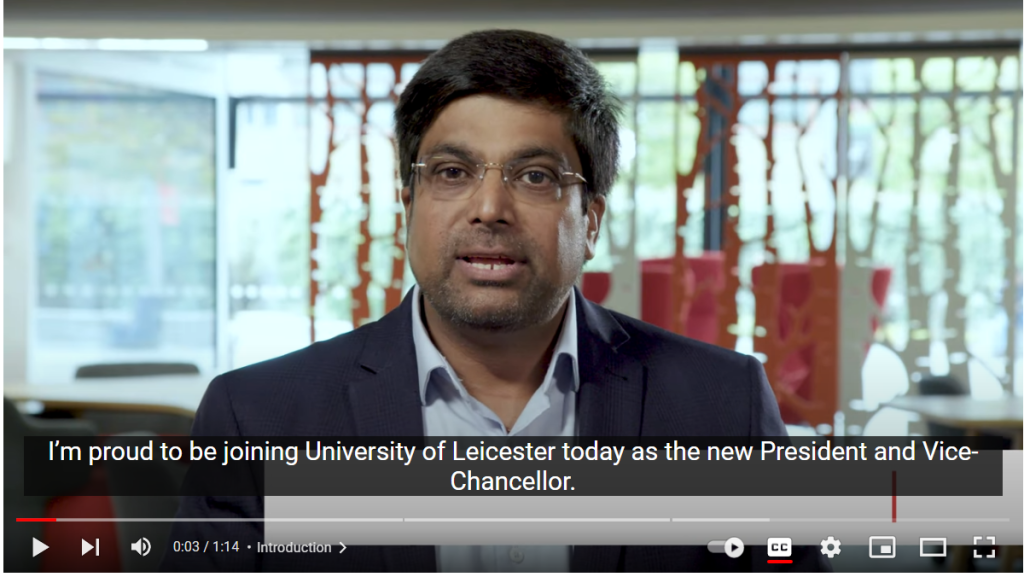
Committed to the values which unify the University of Leicester, The Leicester Institute for Advanced Studies (LIAS) works across the three Colleges to create a collaborative and inspiring environment where all academics feel valued, motivated and supported in carrying out leading research locally, nationally and internationally.
As one University, LIAS is dedicated bringing together academics from different disciplines to break boundaries in research to achieve a common goal of research excellence. Find out more about who we are and what we do.
Two Years of LIAS
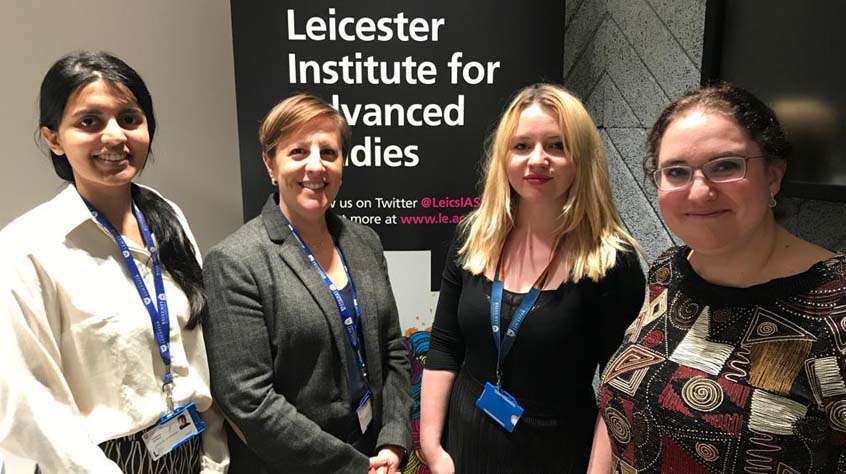
From left to right: Priyanka Ferreira (Administrator), Lisa Smith (Director of LIAS), Charlotte King (Fellowship and Communications Coordinator), and Diane Levine (Deputy Director of LIAS)
The LIAS team has grown over the past two years in order to facilitate the range of programmes which run throughout the year. The team share a mission to bring together researchers from across all disciplines to deliver ambitious, transformative research which makes a difference to the wider world. By funding and supporting Networks, Tiger Teams, Fellowship schemes, Liaison workshops and public events, the team work collectively to reach out to academics, students, the local community and international partners to ensure that the research environment at Leicester is enriched and reflective of the University’s overarching values.
LIAS recently celebrated its second-year anniversary, which brought together a wide network of academics, as well as the Deans of Research, Education Excellence, and the Research and Enterprise Division. We were delighted to include presentations from Professor Nishan Canagarajah, Professor Iain Gillespie, and Professor Rick Rylance.
We look forward to maintaining the strong collaborations we have made throughout the past two years, and building further connections across the University in the coming year.
Three Current Networks
 LIAS-funded Research Networks bring together interdisciplinary teams of researchers to develop innovative solutions to some of the most pressing societal and global challenges. Networks are funded for up to two years to enable a lively programme of events, workshops, and pump-priming of collaborative research projects.
LIAS-funded Research Networks bring together interdisciplinary teams of researchers to develop innovative solutions to some of the most pressing societal and global challenges. Networks are funded for up to two years to enable a lively programme of events, workshops, and pump-priming of collaborative research projects.
LIAS currently support three funded research Networks: The Leicester Prisons Research Network, The Leicester Artificial Intelligence Network, and the Migration, Mobility and Citizenship Network.
Four Tiger Team Cohorts
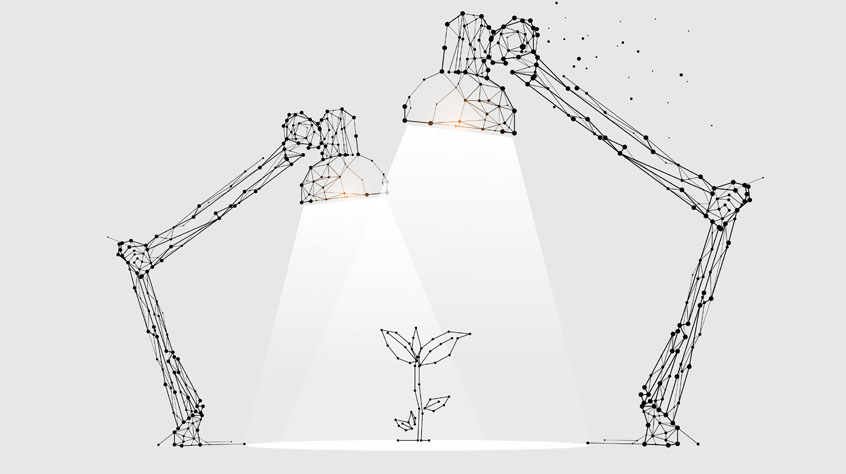 LIAS-funded Tiger Teams consist of interdisciplinary teams of researchers working on short-term, exciting, innovative projects (up to 6 months). To date, eighteen Tiger Teams have come to fruition, offering an exciting and exploratory platform to develop research cutting across disparate boundaries in the research environment. We are also proud to celebrate the origins of the Prisons Network, which evolved from a successful Tiger Team which allowed for priority research outcomes to be realised.
LIAS-funded Tiger Teams consist of interdisciplinary teams of researchers working on short-term, exciting, innovative projects (up to 6 months). To date, eighteen Tiger Teams have come to fruition, offering an exciting and exploratory platform to develop research cutting across disparate boundaries in the research environment. We are also proud to celebrate the origins of the Prisons Network, which evolved from a successful Tiger Team which allowed for priority research outcomes to be realised.
But what sorts of things do the Tiger Teams do? To give you a flavor, the following four Tiger Teams have brought together leading researchers from across all three Colleges.
- Anthropocene (leads: Dr Marta Gasparin, Prof Jan Zalasiewicz, Prof Mark Williams)
- Virtual Vauxhall (lead: Professor Andrew Hugill)
- Urgent Care for Frail Older People (lead: Professor Simon Conroy)
- Leicester Ethnicity, Ageing and Dementia (Leads: Prof John Maltby and Prof Elizaveta Mukaetova-Ladinska)
Five Working Papers

With two volumes and five working papers to date, LIAS Open Access Working Paper Series (OAWPS) is an open access publishing platform for engaging, stimulating, interdisciplinary research ideas and provocations.
With a short internal review process, the OAWPS offers contributors a DIO, and are ideal for demonstrating track record and growth of ideas and collaborators. We accept a range of formats:
- Research papers
- Provocation papers
- Position papers
- Critical reflection papers
- Policy briefs
Six Million Pounds Awarded
 LIAS is proud to have been part of £6m grant awards over the past eighteen months! Without funding, we are unable to continue engaging in research, so must now take the time to thank the many bodies behind the research funders across the UK and internationally.
LIAS is proud to have been part of £6m grant awards over the past eighteen months! Without funding, we are unable to continue engaging in research, so must now take the time to thank the many bodies behind the research funders across the UK and internationally.
The Research and Enterprise Division (RED) is a vital body within the University of Leicester providing support for activity surrounding research, enterprise, impact and knowledge exchange. Without their expertise on funding, providing insights to the costing process and grant application writing process, we would not have the awarded funds we do today. To receive grant income, their guidance is critical.
Seven Interdisciplinary Champions
Behind every interdisciplinary success story are our University’s academic champions. Displaying disciplinary excellence combined with a vision to tackle today’s most pressing challenges, our interdisciplinary champions bring together alternative perspectives, methodologies and approaches to their research projects. Below are seven (of many) interdisciplinary champions chosen to exemplify cutting-edge interdisciplinary research taking place across the University. If you feel inspired to take forwards interdisciplinary research in 2020, come and speak to LIAS about taking your project forward lias@le.ac.uk.
Dr Alex Moseley: “As a playful learning researcher, I cross disciplines continually, and gain energy and new thinking from connections and clashes between them.”
Dr. Chiara Batini: “My research focuses on human genetic diversity: how it can help understanding diseases and behaviours, and how it can contribute to unveil our history. Interdisciplinary is key!”
Dr. Elizabeth Jones and Prof. Martha Clokie: “Bringing together: Bacteriophage science with intercultural understandings of virus fear to tackle antimicrobial resistance.”
Prof. Andrew Hugill: “I combine creativity, computing and business to produce a new hybrid discipline called ‘Creative Computing.”
Prof. Jeremy Levesley: “Recognised the potential for using Artificial Intelligence (AI) to help classify Roman Pottery in the field.”
Prof. Marco Oggioni and Dr. Julie Morrissey: “Leicester Microbial Science & Infectious Diseases: Integrating clinicians, microbiologists, mathematicians and atmospheric chemists boosted our grant income and impact.”
Prof. Ruth Young and Dr. Harjinder Sembhi: “We are using Earth observation to reveal unknown heritage and archaeology.”
Eight Advisory Board Members
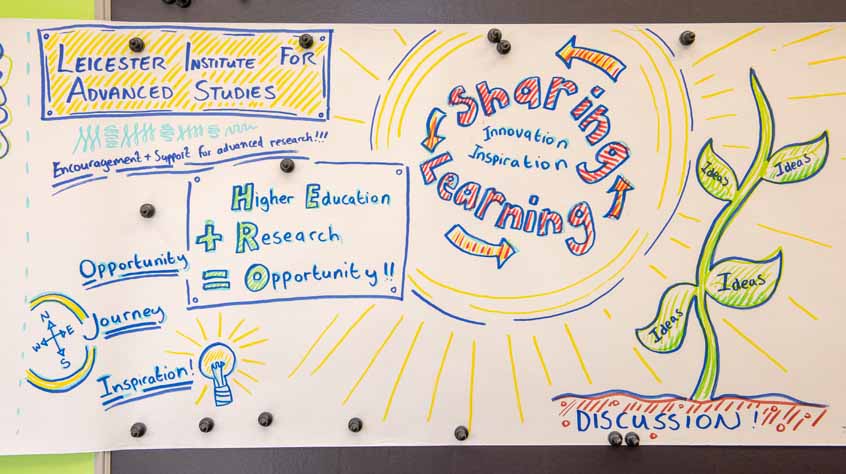 The Advisory Board consists of eight members representing exceptional knowledge across a wide range of areas and a commitment to research strategy. The contribution they make is crucial to our continued success and future development, solidifying the vision of the institute. All the Board members are global ambassadors of the institute, and actively engage in the various programmes which run throughout the year. The Advisory Board ensures we can continue to work openly, creatively and with purpose beneficial to the University, establishing the institute as one unique to Leicester.
The Advisory Board consists of eight members representing exceptional knowledge across a wide range of areas and a commitment to research strategy. The contribution they make is crucial to our continued success and future development, solidifying the vision of the institute. All the Board members are global ambassadors of the institute, and actively engage in the various programmes which run throughout the year. The Advisory Board ensures we can continue to work openly, creatively and with purpose beneficial to the University, establishing the institute as one unique to Leicester.
As former head of the Consortium of Institutes of Advanced Studies, Professor Rick Rylance chairs the advisory board, and has helped establish the identity of the institute. The Leicester Institute for Advanced Studies will be joining the Consortium in 2020.
Nine responsibilities of the REF
There is no escaping the ‘R’ word (REF), and with the added pressures it brings arises the question of where interdisciplinary research sits meaningfully within the framework. However interesting or necessary a research project may be, the requirement to be ‘refable’ can overpower the intrigue into interdisciplinary research (IDR).
Today marks the recognition of Interdisciplinarity in the REF, and sets out to debunk some common myths surrounding it with ‘nine responsibilities of the Interdisciplinary advisor’. Many big societal challenges can only be addressed through IDR. We hope this will help guide how IDR can be part of your REF statement, and how it can, in turn, become a tool towards shaping research vision.
The Interdisciplinary advisor will:
- Contribute towards the established criteria in which to evaluate IDR across panels
- Offer advice and support of IDR elements in submissions
- Determining which submissions meet the IDR criteria in the published guidance
- Advise on cross-referral outputs that have been identified as ID, where cross-referral is required
- Monitoring and moderating scores for IDR outputs
- Offering advice for any elements of Impact and Environment statements which include IDR
- Calibrate with the sub-panel and IDR advisers across the panels on activity relating to IDR
- Assess submissions with recognition of their field and expertise, and distinguish which can be verified as IDR in accordance to the established criteria
- Engage with network of main panel ID members and IDR advisors across the panels to share good practice and consistency of approach. Feed into dub-panel assessment
Find out more about IDR and the REF
Ten Fellows’ countries
Alongside the annual LIAS Fellowship, the institute has been awarded several external Fellowship schemes throughout the past two years, with the commonality of each Fellowship being Interdisciplinary research. They are a pivotal part of the institute’s ongoing programme of activities and research outputs. The ‘Interdisciplinary Futures: research and impact’ event brought together 50 Rutherford Fellows from 15 countries, and welcomed representatives from UUKi and the Commonwealth Scholarship Commission. Such events bring high-calibre academics from various career stages and disciplines to the University, and enrich the research landscape across all three Colleges.
With Fellows from both the UK and the world over, they contribute widely to growing global partnerships. Whilst the Fellows spend only 1-3 months at Leicester, they have contributed significant outputs during their time here, and made sustainable collaborations with academics across the University. Through sharing ideas and methodologies, the Fellows have created cross-pollinated research projects to continue beyond their Fellowship. The fruition of follow-on projects exemplifies the sustainability of these collaborations.
Interdisciplinary Futures: Research and Impact event

(photo credit: Stuart Hollis)
Each Fellow has a designated Principle Host, who helps them to maximise their time during their Fellowship, and feel comfortable in the University. They are academic mentors that go to great lengths to ensure that the reputation of Leicester is upheld once the Fellows return to their respective homes, and that the partnerships are sustained where possible to continue producing fantastic research.

The Ten global partnerships made through the Fellowship schemes
Our Fellows have had a very positive experience at the University of Leicester, and we are proud to be welcoming a new cohort of Fellows from January 2020. Please keep updated with the Fellows’ page to read their biographies, and sign up to the quarterly e-newsletter (email lias@le.ac.uk) to find out more about what they will be doing during their time here.
Eleven Principles of Interdisciplinary Research
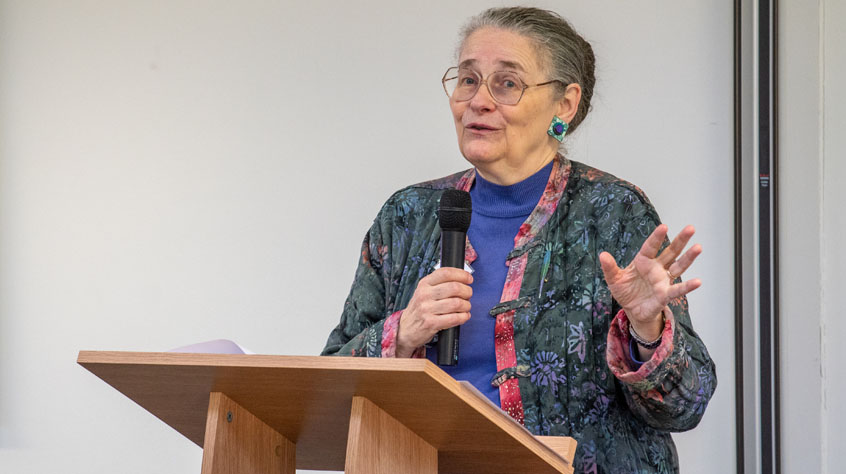 The benefits of Interdisciplinary research (IDR) do not come without challenges. Collaborating a team from disparate disciplines, establishing a shared language or applying various methodologies into a new style of grant proposal, IDR can be both time consuming and mentally challenging. However, with the right information, mindset and planning, you can negotiate your IDR project to have an efficient process with meaningful outcomes.
The benefits of Interdisciplinary research (IDR) do not come without challenges. Collaborating a team from disparate disciplines, establishing a shared language or applying various methodologies into a new style of grant proposal, IDR can be both time consuming and mentally challenging. However, with the right information, mindset and planning, you can negotiate your IDR project to have an efficient process with meaningful outcomes.
A series of briefs have been compiled to navigate the approach and management of IDR. Wherever you are on your interdisciplinary journey, you will find the words of the experts a reassuring way to approach your research, and make the most out of the individuals in your IDR team.
- A Short Guide to Developing Interdisciplinary Research Proposals (PDF, 294kb) by Professor Joyce Tait and Dr Catherine Lyall
- A Short Guide to Reviewing Interdisciplinary Research Proposals (PDF, 308kb) by Dr Catherine Lyall, Ann Bruce, Professor Joyce Tait and Dr Laura Meagher
- A Short Guide to Building and Managing Interdisciplinary Research Teams (PDF, 284kb) by Dr Catherine Lyall and Dr Laura Meagher
- A Short Guide to Supervising Interdisciplinary PhDs (PDF, 289kb) by Dr Catherine Lyall, Dr Laura Meagher and Professor Joyce Tait
- A Short Guide to Troubleshooting Some Common Interdisciplinary Research Management Challenges (PDF, 316kb) by Dr Catherine Lyall and Dr Laura Meagher
- A Short Guide to Designing Interdisciplinary Research for Policy and Practice (PDF, 415kb) by Dr Catherine Lyall
- A Short Guide to Developing Interdisciplinary Strategies for Research Groups (PDF, 313kb) by Dr Catherine Lyall, Prof Robin Williams, Dr Laura Meagher
- A Short Guide for Funders of Interdisciplinary Research (PDF, 311kb) by Dr Wendy Marsden, Dr Catherine Lyall, Dr Ann Bruce and Dr Laura Meagher
- A Short Guide to Evaluating Interdisciplinary Research (PDF, 341kb) by Dr Catherine Lyall, Prof Joyce Tait, Dr Laura Meagher, Dr Ann Bruce and Dr Wendy Marsden
- A Short Guide to Leading Interdisciplinary Initiatives (PDF, 349kb) by Dr Laura Meagher, Dr Catherine Lyall, Dr Ann Bruce and Dr Wendy Marsden
- A Short Guide to Exploring Interdisciplinary Careers (PDF, 2.99MB) by Prof Catherine Lyall with Dr Laura Meagher
Twelve interactive workshops

Workshops are an important way to identify priority themes in research and strategy, and help to establish roles and timings within a specified framework. At LIAS, we facilitate two workshop formats; the LIAiSon series, and the CoNavigator kit.
The LIAiSon series offers funding to support workshops and focused meetings, intended to bring together expertise across the University of Leicester to address important, timely research ideas and challenges. Topics can be thematic, methodological, or practice-focused, but must invite interdisciplinary thinking or ways of working. Please follow the application process (PDF, 143kb).
The CoNavigator kits are interactive collaboration and problem-solving tools designed and developed by an interdisciplinary team of researchers from the University of Copenhagen. Focusing on group-specific themes, they overcome innate challenges of interdisciplinary collaborations in a democratic format. They are available to hire for workshops, please e-mail lias@le.ac.uk to inquire further.
